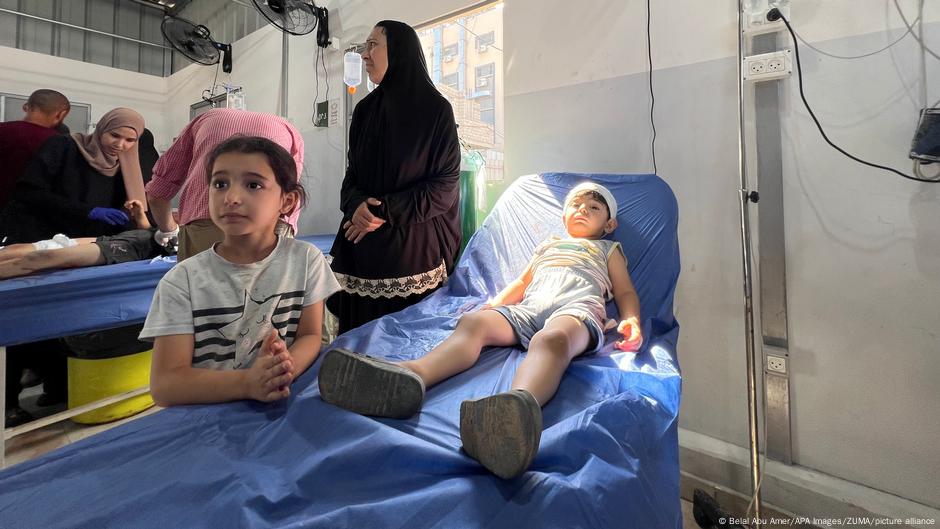
German Cities Seek to Help Gaza Children, but Federal Government Hesitates
Several German cities have stepped forward with offers to provide medical care and treatment for sick and traumatized children from the Gaza Strip. The cities involved include Hannover, Dusseldorf, Bonn, Leipzig, and Kiel. However, these efforts require support from the federal government to proceed effectively. This includes managing entry procedures, selecting the children, and coordinating the entire relief operation.
The mayors of these cities have formally requested assistance from the federal authorities, specifically reaching out to Interior Minister Alexander Dobrindt and Foreign Minister Johann Wadephulof. These officials represent the conservative bloc of the Christian Social Union (CSU) and the Christian Democratic Union (CDU), respectively. Despite the cities’ willingness to help, the federal government has shown reluctance, citing a need to assess the situation carefully before making decisions.
Focus on Ground-Level Aid
Interior Minister Dobrindt emphasized that the priority should be on providing aid directly in Gaza and the surrounding regions. He acknowledged the value of the cities' offer but stressed the importance of focusing on the broader population rather than a limited number of children. A spokesperson for the Interior Ministry added that the decision would depend on several factors, including the security situation and the ability of children to leave the area safely.
While the government welcomes the initiative in principle, it is cautious about moving forward without thorough evaluation. The spokesperson noted that supporting civil society efforts to assist minors from Gaza is considered important, but the focus remains on expanding local medical aid.
Criticism and Political Tensions
The cities' proposal has sparked debate among political figures. Serap Güler, a conservative lawmaker at the Foreign Ministry, questioned the altruism behind the offer, particularly for Dusseldorf and Bonn, which are preparing for municipal elections. She suggested that the initiative might be more about political gain than genuine humanitarian concern.
In contrast, Ines Schwerdtner, leader of the opposition socialist Left Party, criticized Güler's remarks as unacceptable. She argued that Germany, as one of the few EU countries, should not remain passive while people suffer in Gaza. A Foreign Ministry spokesperson later rejected Güler’s statement, emphasizing the importance of humanitarian action.
Concerns About Migration
Behind the hesitation lies a fear of potential immigration challenges. The CDU/CSU bloc is wary of a new wave of irregular migration, even if it starts with a small number of children. This concern aligns with their election promises to curb immigration, an issue also highlighted by the far-right Alternative for Germany (AfD) party.
Alexander Hoffmann, leader of the CSU parliamentary group, stated that the responsibility for taking in vulnerable groups should fall on neighboring Arab states. He added that a new wave of immigration to Germany cannot be the solution.
Conservative politicians worry that treating children in Germany could lead to family reunification programs, allowing relatives to follow. The challenge of returning individuals to Gaza is complicated by the fact that Palestinians are considered stateless in Germany, which has not recognized Palestine as a country.
Support from the SPD and Greens
On the other hand, the Social Democratic Party (SPD), the CDU/CSU’s coalition partner, is more open to accepting children from Gaza. Dirk Wiese, a member of the SPD parliamentary group, described the initiative as a “sign of humanity” and emphasized the need for safe travel arrangements.
Belit Onay, mayor of Hannover and a member of the Green Party, has defended the initiative, pointing out that Germany has previously taken in injured people from Ukraine and abused Yazidis from Iraq. He stressed that this approach has been successfully implemented before and that the key factor is the willingness to act.
Contrast with Other European Countries
The German government’s hesitation contrasts sharply with actions taken by other European nations. Italy and Spain have already accepted seriously injured children from Gaza for treatment. The United Kingdom has also announced an evacuation plan, though it involves only a small number of children. Aid organizations are urging the British government to expedite the process, highlighting the urgency of the situation.
Hannover Mayor Onay has proposed collaboration with the UK, but Chancellor Friedrich Merz has yet to comment on the cities’ offer.
Ongoing Debate and Future Steps
As the debate continues, the question remains whether Germany will take a more active role in aiding children from Gaza. While some political factions advocate for immediate action, others remain cautious, prioritizing security and migration concerns. The outcome of this discussion could set a precedent for future humanitarian efforts and shape Germany’s approach to international crises.
